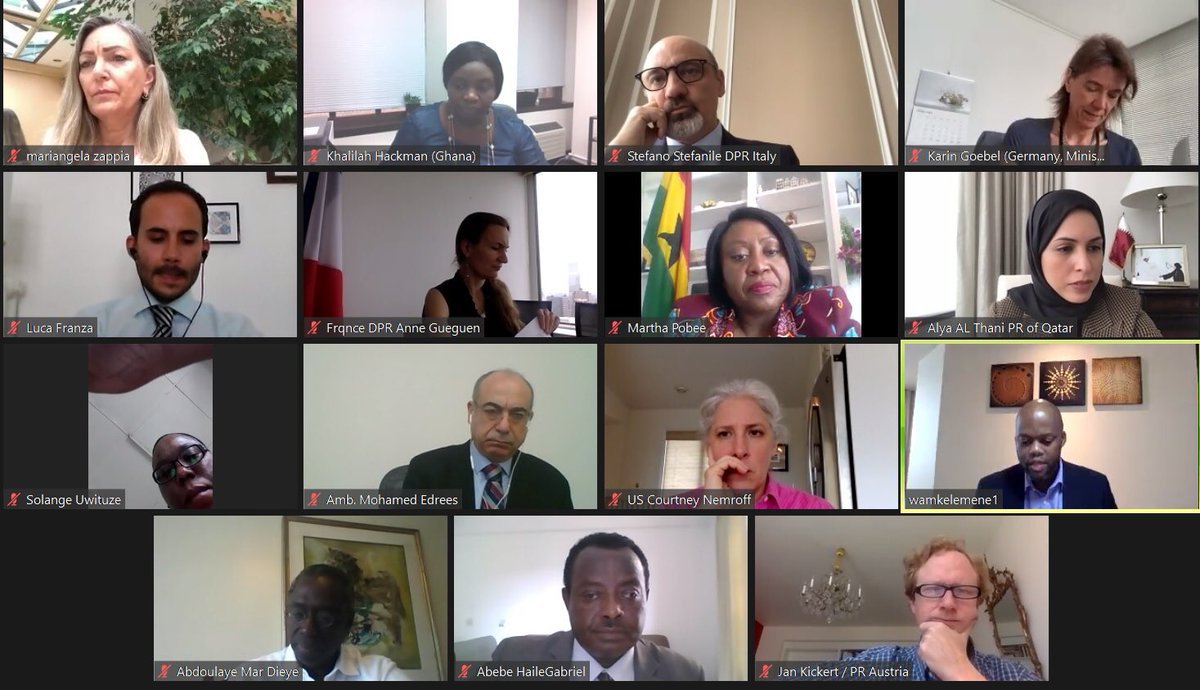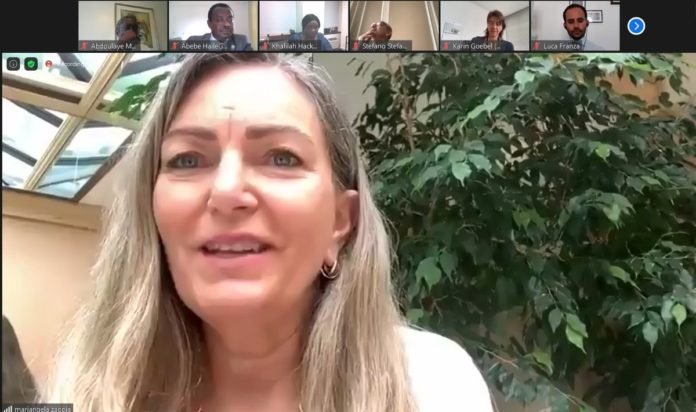NEW YORK, JUNE 18 – “Sustainable agriculture and the resilience of food systems must be at the center of Africa’s effort to face the challenges of sustainable development, climate and biodiversity, taking the lessons learned from the Coronavirus crisis”, the Italian Permanent Representative to the United Nations in New York, Ambassador Mariangela Zappia, said at the opening of an interactive dialogue organized by Italy and Ghana in collaboration with the Institute for International Affairs.
 The event focused on the role of sustainable agriculture in advancing Africa’s development and in addressing multiple challenges of climate change and biodiversity on the Continent provided an opportunity to debate some key inter-linked issues that are critical to achieving the Sustainable Development Goals (SDGs) in a post-Covid 19 era. Representatives of UNDP, FAO, the African Continental Free Trade Area, the Institute for International Affairs of South Africa and the Rwanda Agriculture Committee spoke during the meeting.
The event focused on the role of sustainable agriculture in advancing Africa’s development and in addressing multiple challenges of climate change and biodiversity on the Continent provided an opportunity to debate some key inter-linked issues that are critical to achieving the Sustainable Development Goals (SDGs) in a post-Covid 19 era. Representatives of UNDP, FAO, the African Continental Free Trade Area, the Institute for International Affairs of South Africa and the Rwanda Agriculture Committee spoke during the meeting.
 “The COVID pandemic is highlighting the need to ensure the functionality of supply chains, to support small producers, to ensure open agri-food markets, and to promote green solutions for sustainable agriculture. Italy is committed to further discuss these issues as President of the UN Group of Friends on Food Security and Nutrition, through the creation of a FAO-led Food Coalition, and in close collaboration with the Agencies UN, to prevent the health emergency from turning into a food crisis”, said Zappia: “We pay particular attention to Africa, to which Italy is linked by deep relationships of friendship and partnership, to contain the potentially devastating consequences of the pandemic on the most vulnerable countries”, added the Ambassador stressing that these priorities will be at the center of the Italian agenda as the country is preparing to assume the presidency of the G20 and the co-presidency of COP26 in 2021.
“The COVID pandemic is highlighting the need to ensure the functionality of supply chains, to support small producers, to ensure open agri-food markets, and to promote green solutions for sustainable agriculture. Italy is committed to further discuss these issues as President of the UN Group of Friends on Food Security and Nutrition, through the creation of a FAO-led Food Coalition, and in close collaboration with the Agencies UN, to prevent the health emergency from turning into a food crisis”, said Zappia: “We pay particular attention to Africa, to which Italy is linked by deep relationships of friendship and partnership, to contain the potentially devastating consequences of the pandemic on the most vulnerable countries”, added the Ambassador stressing that these priorities will be at the center of the Italian agenda as the country is preparing to assume the presidency of the G20 and the co-presidency of COP26 in 2021.
A presentation on the findings of the multimedia project entitled “The African Century: People, Agriculture and the Environment”, soon to be published by the Italian think-tank Istituto Affari Internazionali (IAI), set the tone for the discussion. The presentation also highlighted Ghana’s experience in adopting innovation in the agri-food sector, transitioning from outdated farming techniques to advanced and sustainable models.
Among the central aspects that emerged from the discussion: the development of sustainable energies and the application of digital technologies in agriculture, the role of the private sector and investments in value chains, the acceleration of regional integration processes and the removal of barriers to trade, the importance of partnerships, and the support for the role of women. (@OnuItalia)

